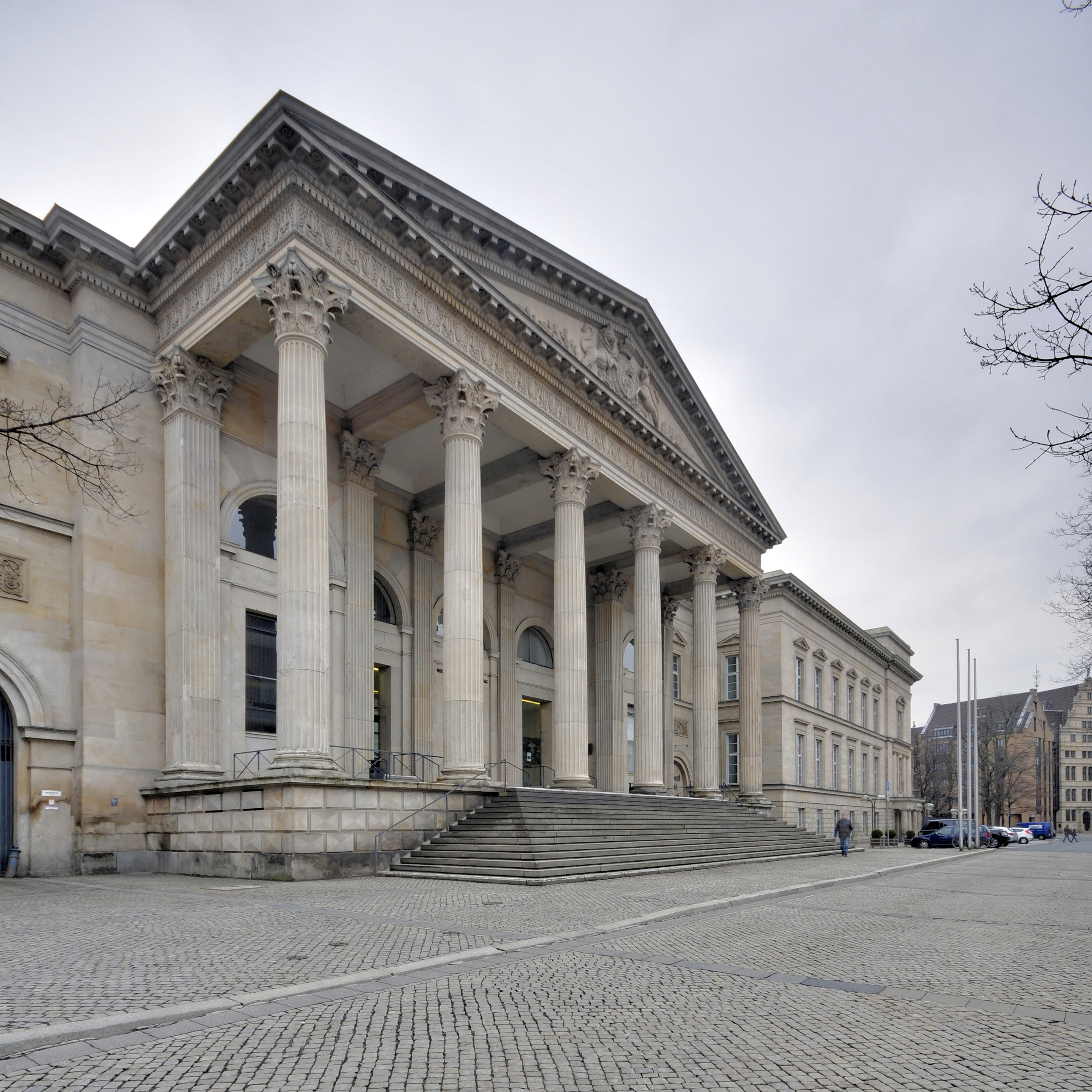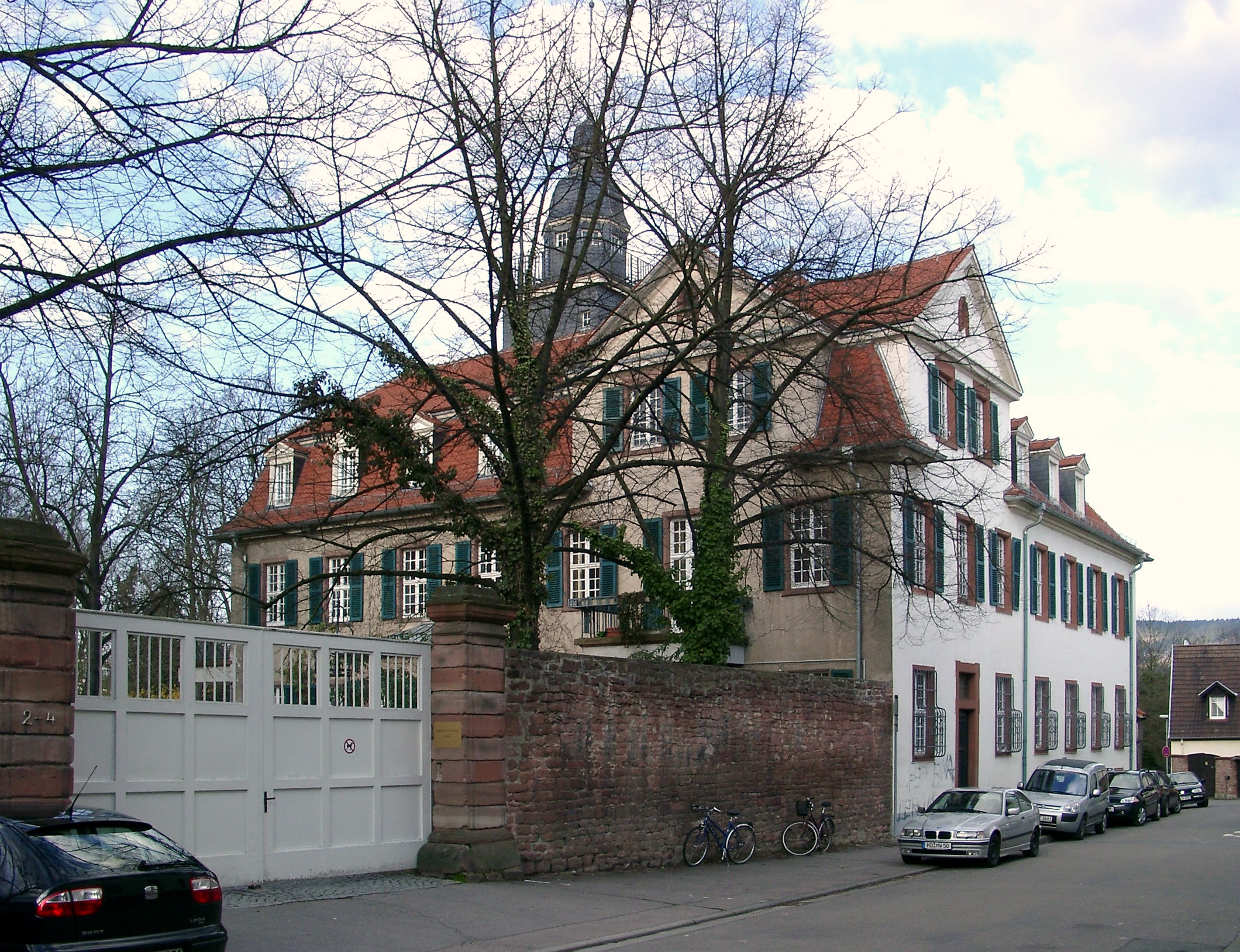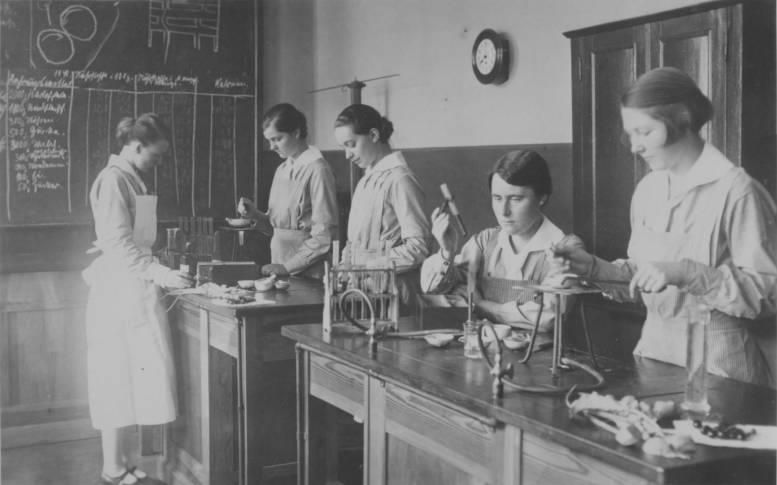|
Elizabeth Von Thadden
Elisabeth Adelheid Hildegard von Thadden (29 July 1890 – 8 September 1944, executed) was a German progressive educator and a resistance fighter against the Nazi régime as a member of the Solf Circle. She was sentenced to death for conspiring to commit high treason and undermining the fighting forces (''Wehrkraftzersetzung''). Early life and family Elisabeth von Thadden was born in Mohrungen, East Prussia (present-day Morąg, Poland) to the long-established noble Thadden family. Her parents were Adolf Gerhard Ludwig von Thadden (1858-1932), Prussian county commissioner (''Landrat'') of '' Landkreis Greifenberg'' in Pomerania (now '' Powiat Gryficki'' in Poland), and Ehrengard von Gerlach (1868–1909). She was the eldest of five children. In 1905, the family moved to the Trieglaff (Trzygłów) estate in Pomerania, where Thadden grew up in a big Protestant family. Elisabeth's brother, Reinold (1891-1976), grew up to be a famous theologian and jurist, and her nephew, Rein ... [...More Info...] [...Related Items...] OR: [Wikipedia] [Google] [Baidu] |
Morąg
Morąg (; german: Mohrungen, ) is a town in northern Poland in Ostróda County in the Warmian-Masurian Voivodeship. It is the seat of Gmina Morąg (commune). Geography The town is situated in the western uplands of the historic Prussia region. Its centre is located about south of the Polish–Russian (Kaliningrad) border. The nearest city is Olsztyn in Warmia, to the southeast. History Middle Ages In medieval times, an Old Prussian settlement existed at the site under the name of ''Mawrin, Maurin'' or ''Morin''. A new town was built on its place by the invading Teutonic Knights after they destroyed the original settlement in the late 13th century. Part of the Order's State, it was given the name ''Mohrungen'' after a nearby lake and in 1327 attained Kulm town law from the local commander (''Komtur'') Hermann von Oettingen. The first inhabitants of the town were emigrants from the southern Harz region in central Germany. After the 1410 Battle of Grunwald the victorious Pol ... [...More Info...] [...Related Items...] OR: [Wikipedia] [Google] [Baidu] |
Landtag Of Lower Saxony
The Lower Saxon Landtag () or the Parliament of Lower Saxony is the state diet of the German state of Lower Saxony. It convenes in Hanover and currently consists of 146 members, consisting of four parties. Since 2022 the majority is a coalition of the Social Democratic Party and the Greens, supporting the cabinet of Minister-President Stephan Weil (SPD). Landtag building  The Landtag is situated in the
The Landtag is situated in the
|
Alice Salomon
Alice Salomon (19 April 1872, in Berlin – 30 August 1948, in New York City) was a German social reformer and pioneer of social work as an academic discipline. Her role was so important to German social work that the ''Deutsche Bundespost'' (German post office) issued a commemorative postage stamp about her in 1989. A university, a park and a square in Berlin are all named after her. Life and career Alice Salomon was the third of eight children, and the second daughter, of Albert and Anna Salomon. Like many girls from affluent families in this period, she was denied further education, despite her ambition to become a teacher. This ended in 1893 when she was 21, and she recorded in her autobiography that this was "when her life began". In 1900 she joined the ''Bund Deutscher Frauenvereine'' ("Federation of German Women's Associations" – BDF hereinafter). In due course she was elected deputy chairperson, and kept this role until 1920. (The Chairperson was Gertrud Bäumer). ... [...More Info...] [...Related Items...] OR: [Wikipedia] [Google] [Baidu] |
Soziale Frauenschule
Soziale Frauenschule was the name given to certain educational institutions that emerged in Germany between the turn of the century and the beginning of the 1920s. In the course of the women's movement, they pursued the goal of vocational training for women in the welfare care sector. Another aim was to overcome the hardship of the First World War, which particularly affected women, who were to be supported by qualified female staff.Klaus Burger: ''Prüfende Strenge statt blinder Weichherzigkeit. On the history of poverty and social institutions in Freiburg'' in Heiko Haumann, Hans Schadek (eds.): ''Geschichte der Stadt Freiburg im Breisgau,'' vol. 3, Theiss, Stuttgart 1996, , The first Sociale Frauenschule (Social Women's School) was established as a further development of a training school for kindergarten teachers in Berlin in 1908, founded by Alice Salomon Alice Salomon (19 April 1872, in Berlin – 30 August 1948, in New York City) was a German social reformer and pionee ... [...More Info...] [...Related Items...] OR: [Wikipedia] [Google] [Baidu] |
Berlin
Berlin ( , ) is the capital and largest city of Germany by both area and population. Its 3.7 million inhabitants make it the European Union's most populous city, according to population within city limits. One of Germany's sixteen constituent states, Berlin is surrounded by the State of Brandenburg and contiguous with Potsdam, Brandenburg's capital. Berlin's urban area, which has a population of around 4.5 million, is the second most populous urban area in Germany after the Ruhr. The Berlin-Brandenburg capital region has around 6.2 million inhabitants and is Germany's third-largest metropolitan region after the Rhine-Ruhr and Rhine-Main regions. Berlin straddles the banks of the Spree, which flows into the Havel (a tributary of the Elbe) in the western borough of Spandau. Among the city's main topographical features are the many lakes in the western and southeastern boroughs formed by the Spree, Havel and Dahme, the largest of which is Lake Müggelsee. Due to its l ... [...More Info...] [...Related Items...] OR: [Wikipedia] [Google] [Baidu] |
Heidelberg Wieblingen Elisabeth-von-Thadden-Schule
Heidelberg (; Palatine German: '''') is a city in the German state of Baden-Württemberg, situated on the river Neckar in south-west Germany. As of the 2016 census, its population was 159,914, of which roughly a quarter consisted of students. Located about south of Frankfurt, Heidelberg is the fifth-largest city in Baden-Württemberg. Heidelberg is part of the densely populated Rhine-Neckar Metropolitan Region. Heidelberg University, founded in 1386, is Germany's oldest and one of Europe's most reputable universities. Heidelberg is a scientific hub in Germany and home to several internationally renowned research facilities adjacent to its university, including the European Molecular Biology Laboratory and four Max Planck Institutes. The city has also been a hub for the arts, especially literature, throughout the centuries, and it was designated a "City of Literature" by the UNESCO Creative Cities Network. Heidelberg was a seat of government of the former Electorate of th ... [...More Info...] [...Related Items...] OR: [Wikipedia] [Google] [Baidu] |
World War I
World War I (28 July 1914 11 November 1918), often abbreviated as WWI, was one of the deadliest global conflicts in history. Belligerents included much of Europe, the Russian Empire, the United States, and the Ottoman Empire, with fighting occurring throughout Europe, the Middle East, Africa, the Pacific, and parts of Asia. An estimated 9 million soldiers were killed in combat, plus another 23 million wounded, while 5 million civilians died as a result of military action, hunger, and disease. Millions more died in genocides within the Ottoman Empire and in the 1918 influenza pandemic, which was exacerbated by the movement of combatants during the war. Prior to 1914, the European great powers were divided between the Triple Entente (comprising France, Russia, and Britain) and the Triple Alliance (containing Germany, Austria-Hungary, and Italy). Tensions in the Balkans came to a head on 28 June 1914, following the assassination of Archduke Franz Ferdin ... [...More Info...] [...Related Items...] OR: [Wikipedia] [Google] [Baidu] |
Peace Movement
A peace movement is a social movement which seeks to achieve ideals, such as the ending of a particular war (or wars) or minimizing inter-human violence in a particular place or situation. They are often linked to the goal of achieving world peace. Some of the methods used to achieve these goals include advocacy of pacifism, nonviolent resistance, diplomacy, boycotts, peace camps, ethical consumerism, supporting anti-war political candidates, supporting legislation to remove profits from government contracts to the military–industrial complex, Gun politics in the United States, banning guns, creating tools for open government and government transparency, transparency, direct democracy, supporting whistleblowers who expose war crimes or false flag, conspiracies to create wars, Demonstration (people), demonstrations, and Interest group, political lobbying. The political cooperative is an example of an organization which seeks to merge all peace-movement and green organizations; the ... [...More Info...] [...Related Items...] OR: [Wikipedia] [Google] [Baidu] |
Friedrich Siegmund-Schultze
Friedrich Siegmund-Schultze (14 June 1885, in Görlitz – 11 July 1969, in Soest) was a German academic working in theology, social pedagogy and social ethics, as well as a pioneer of peace movements. Life After studying at several gymnasia, Siegmund-Schultze studied philosophy and theology in Breslau and Magdeburg. In 1908 he became the secretary of the ''Church Committee for friendly relations between Great Britain and Germany'' (''Kirchlichen Komitees zur Pflege freundschaftlicher Beziehungen zwischen Großbritannien und Deutschland'') and later secretary to the ''World Christian Student League for social work and foreign mission'' (''Christlichen Studentenweltbundes für Sozialarbeit und Ausländermission''). In 1911 he and his wife founded the "Soziale Arbeitergemeinschaft Berlin-Ost" (SAG) - its offices were shut down after the Nazi seizure of power. At the World Churches Conference in Konstanz from 1 to 3 August 1914, just before the outbreak of war, he was secre ... [...More Info...] [...Related Items...] OR: [Wikipedia] [Google] [Baidu] |
Reifenstein Schools
The Reifenstein schools (german: Reifensteiner Schulen) were the various schools of higher education for women associated with the Reifensteiner Verband. The concept was initiated by Ida von Kortzfleisch, a Prussian noble woman and early German feminist. Reifenstein refers to Reifenstein in Eichsfeld, a municipality in Thuringia and site of the first permanent school. From 1897 to 1990 the Reifensteiner Verband operated about 15 of its own schools and cooperated with further operators. About 40 ''wirtschaftliche Frauenschulen'', rural women economy schools were connected to the Reifenstein concept and movement. The association and its journals provided an alumni network and a job placement service, as well as strengthening home economics ( Ekotrophology) as an academic discipline and were important for consumer advice and rural social services over all. About 90,000 women took the higher education courses. Some of the alumni, like Käthe Delius, Marie-Elisabeth Lüde ... [...More Info...] [...Related Items...] OR: [Wikipedia] [Google] [Baidu] |
Baden-Baden
Baden-Baden () is a spa town in the states of Germany, state of Baden-Württemberg, south-western Germany, at the north-western border of the Black Forest mountain range on the small river Oos (river), Oos, ten kilometres (six miles) east of the Rhine, the border with France, and forty kilometres (twenty-five miles) north-east of Strasbourg, France. In 2021, the town became part of the transnational World Heritage Site, UNESCO World Heritage Site under the name "Great Spa Towns of Europe", because of its famous spas and architecture that exemplifies the popularity of spa towns in Europe in the 18th through 20th centuries. Name The springs at Baden-Baden were known to the Roman Empire, Romans as ("The Waters") and ("Aurelia (name), Aurelia-of-the-Waters") after M. Aurelius Severus Alexander Augustus. In modern German, ' is a noun meaning "bathing" but Baden, the original name of the town, derives from an earlier plural, plural form of ' (Bathing, "bath"). (Modern German uses ... [...More Info...] [...Related Items...] OR: [Wikipedia] [Google] [Baidu] |
West Germany
West Germany is the colloquial term used to indicate the Federal Republic of Germany (FRG; german: Bundesrepublik Deutschland , BRD) between its formation on 23 May 1949 and the German reunification through the accession of East Germany on 3 October 1990. During the Cold War, the western portion of Germany and the associated territory of West Berlin were parts of the Western Bloc. West Germany was formed as a political entity during the Allied occupation of Germany after World War II, established from eleven states formed in the three Allied zones of occupation held by the United States, the United Kingdom, and France. The FRG's provisional capital was the city of Bonn, and the Cold War era country is retrospectively designated as the Bonn Republic. At the onset of the Cold War, Europe was divided between the Western and Eastern blocs. Germany was divided into the two countries. Initially, West Germany claimed an exclusive mandate for all of Germany, representing itself as t ... [...More Info...] [...Related Items...] OR: [Wikipedia] [Google] [Baidu] |





